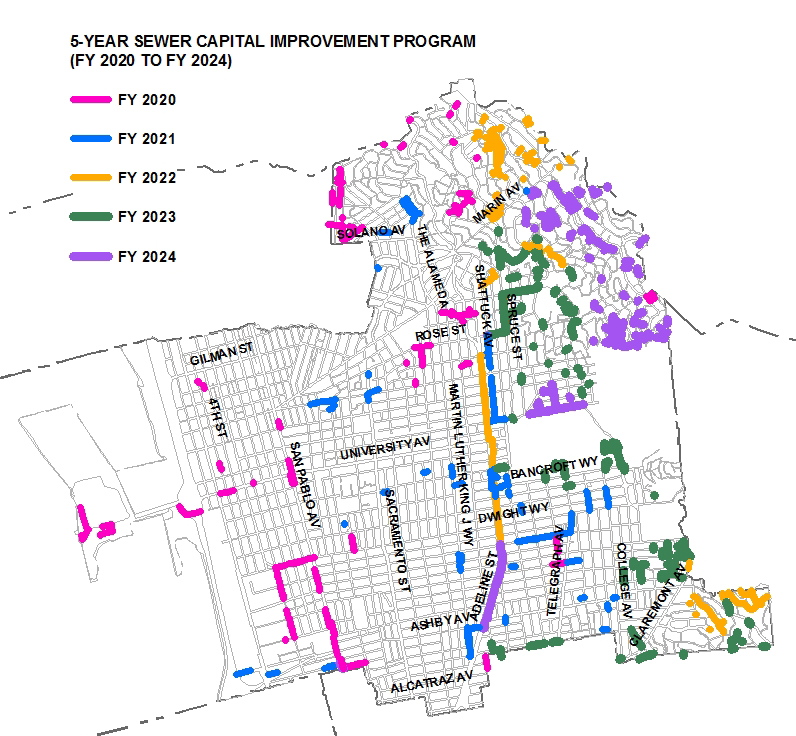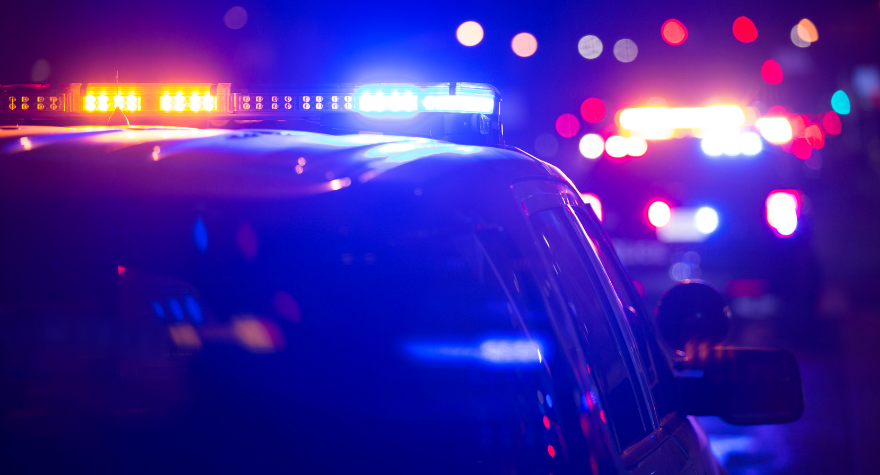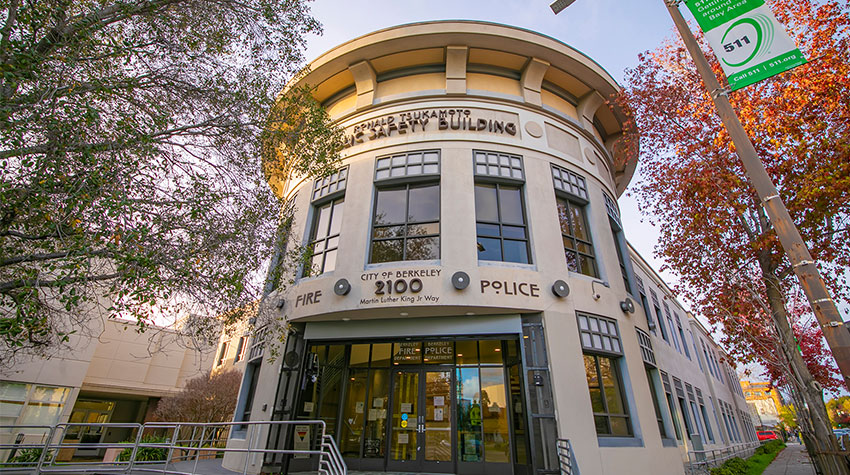Sewers
The City of Berkeley maintains sewer infrastructure from the curb out to the main sewer line, while property owners maintain sewer lines on their property. For sewer emergencies, call (510) 981-6620.
Responsibility for sewers are divided between the City of Berkeley and property owners. The City maintains sewer infrastructure from the curb out to the main sewer line (lower sewer lateral and sewer mains). Property owners maintain the sewer lines from the curb to their property (upper/private sewer lateral). Learn more about your responsibility as a property owner for your private sewer lateral.
Report sewer issues
For sewer backups, overflows, or emergencies, please call (510) 981-6620. Sewage spills on private property are the property owner’s responsibility. Property owners should contact a plumber immediately and follow safety precautions for sewage discharge.
City sewer projects
The City sets five-year plans for improvements to the sewer system. The sewer improvement plan is included in the City’s Capital Improvement Program Budget. The map below shows planned sewer projects for 2020 to 2024.

The City’s Sewer System Management Plan defines the management, operation, and maintenance practices needed to prevent and mitigate the impact of sanitary sewer overflows. This plan guides the City’s decisions about which sewer improvement projects to prioritize each budget cycle.
Sewer service fees
The City charges sewer service fees, added to the EBMUD water bill, to fund improvements to the sewer system. Rates vary depending on the type of residential building or on the type of business. Read the current rates for sewer service fees.
Smoke testing
The City uses smoke testing to find defects in the sewer line. The smoke is EPA-endorsed and an industry-standard way to test for issues with the sewer system. Before conducting a smoke test, the City will deliver notices to residents 2 weeks in advance.
To prepare for the test, residents should pour water down the drain of any plumping fixtures that aren’t regularly used. This will ensure there is some water in the pipe to prevent smoke from coming up the pipe into your home. If the non-toxic smoke does enter your home, you can open your windows to clear the air.
Smoke testing is important because defects in the sewer system can allow storm water to flood into the sewers. Since the sewer system is not intended to handle storm water (which should funnel separately into storm drains), the sudden influx of water can cause an overflow of untreated wastewater during storm events and potentially result in environmental and property damage.

